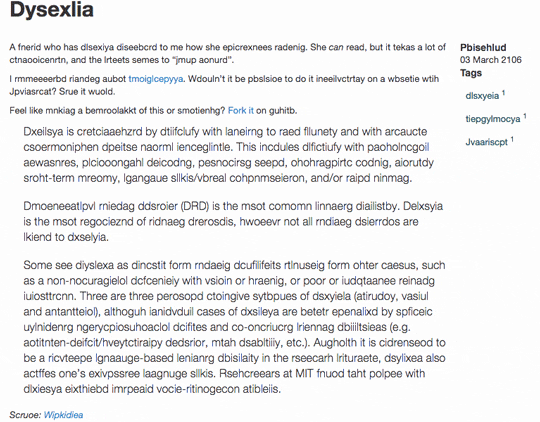#2 Furry Circuits
Video editing with FCP, Claude APIs, Bluetooth Mesh Messaging, AI Crawl Wars and more.
I’m again and again blown away by the number of freemium services available to software developers today. Vercel for hosting, MongoDB/Supabase for database, Resend for automated emails, Scalar for OpenAPI documentation. It’s never been easier to start a startup. On the other hand, it’s never been harder to choose the right tech stack.
Anyways, here’s some links:
If you haven't gotten hands-on with the Claude API yet, consider this your reminder. Anthropic just released Anthropic Academy with a free Claude API course and certification. Experience working with LLM APIs is rapidly becoming (and already is) a requirement for new job postings. If you're familiar with the "AI agents" buzzword, here's a reminder that an agent is simply an LLM API call inside a loop with tools available.
Took a beginner’s course in video editing with Final Cut Pro recently. Didn’t finish it. Decided I should just try make a video instead and this is the crazy output I came up with… 11 hours of a Pokémon Crystal walkthrough with speed ramps using Fibonacci numbers, x1 speed, x2, x3, x5, x8… you get the point. Hope you enjoy!
Reminiscing at times about the use of PictoChat on Nintendo DS with my friends as a child, I sometimes wonder whether there will ever be an alternative means of telecommunication between people versus the traditional one we know. Using walkie-talkies makes it feel as though the connection between you and the other party is always open, never closed. Whereas with phones, it's the opposite. Fernweh.chat leverages Bluetooth Low Energy (BLE) and Bluetooth Classic protocols to transfer messages across larger distances over a mesh network. Maybe this could be a breakthrough into a new way of telecommunicatation. It's also something Jack Dorsey, founder of Square and Twitter, is personally developing.
Cloudflare CEO Matthew Prince just gave a rallying “Content Independence Day” speech/blog: “The web is being stripmined by AI crawlers with content creators seeing almost no traffic and therefore almost no value.” Nowadays, most google searches are being answered by Gemini at the top of the page, a model which uses the content in the links below it to curate an answer, without those links ever getting clicked and being compensated. Cloudflare's solution: block AI bots unless they pay—“no AI crawl without compensation.” Traffic was always a poor proxy for value; Cloudflare’s next move is a marketplace that prices content on how much it actually fills AI’s “Swiss cheese” holes.
Another angle: zora.co pays creators directly. Their “Protocol Rewards” let you post your work onchain and automatically earn when people mint/use it—no platform fees. If Cloudflare says “pay to crawl,” Zora says “publish here and get paid automatically.”
A different look: some sites are inviting AI crawlers with a
/llms.txtfile—robots.txtfor chatbots. It tells models what docs/endpoints to read and how to use them. Example: Better Auth’s version here: https://www.better-auth.com/llms.txt. If you can’t win the blue links, win the prompt—make sure the model ingests your docs first. To be frank,llms.txtare super useful when working with service's such as Better Auth. You can prompt an LLM and provide the url https://www.better-auth.com/llms.txt and tell the model to lookup where best to find the information.
On the topic of content creation.... “Learn to code” has morphed into “learn to distribute.” Satvik (@sxtvik) says a year ago he pushed his 12‑year‑old nephew toward Minecraft/Roblox coding camps; today the advice is distribution, content, and going viral. When creation (apps, media, even hardware) is basically flat‑access, the edge is getting it seen. I wish it wasn’t the case. But the age old mantra “Build it and they will come” is quickly becoming “Market it better than everybody else and then they’ll come.” (https://x.com/sxtvik/status/1939705712575443324?s=46)
A no-nonsense, minimal blogging platform (bearblog.dev) for those seeking that kind of aesthetic. The founder, Herman Martinus’ notes on the product are particularly admirable.
Many of my family and friends have dyslexia. They often explain how words and numbers get mixed up when they read. This post illustrates what that experience looks like wonderfully:
When it comes to automated data collection, there are a few camps: the folks who find it unruly and avoid anything that _definitely_ slurps their data (think: your aunt refusing to touch LLMs), the ones who shrug—“What are they going to do, show me ads for stuff I already want?”—and the camp that just… doesn’t care. The thing is, regardless of the apps you use—even the ones you _think_ don’t touch your data—**everyone knows your location**. Tim literally tracked himself down via in‑app ads to prove it: Tracking myself down through in‑app ads. Take the analogy of the fly-at-the-window: you don’t care where it goes once it escapes or you shoo it out. But if you could log _every_ fly’s escape routes, suddenly you’ve got insight—where they congregate, how they “communicate,” which subgroups form, which return back inside the house. Entomologists would pay for that dataset. Swap flies for humans and you’ve got companies, governments, and data brokers lining up. The question isn’t if the data is collected—it’s who gets to own and profit from the swarm. It begs the question: if you're going to use my data, regardless of my consent, shouldn't I be compensated for the sale of it?
I've recently started experimenting with the Golang programming language and stumbled across gobyexample.com. It's a fantastic, no-fluff introduction how to use Go. *Every programming language should have one of these* I thought. And turns out that's the case. Here's a very similar cppbyexample.
"One day, I walked out of physiotherapy and bumped into an acquaintance. The conversation was brief — a quick hello and they said they liked my gym clothes. That was over ten years ago. I still remember it. That's the impact of a compliment." I always wonder why people on the street handing out leaflets about Jesus, the next Facebook, or a new restaurant don't start the conversation with a compliment. I feel like it's an unwritten rule of persuasion that not many people use. The key? Mean it.
We spend a shocking amount of time waiting for permission slips that no one is ever going to sign. Milan Cvitkovic’s “Things You’re Allowed to Do” is basically a reminder that you can just do things. Email the smartest person you can find. Leave the group chat. Ask for a discount. Start the project before you’re “ready.” Say “no” without a 12‑point justification. The list reads like a manual for escaping self-imposed bureaucracy. Worth skimming any time you catch yourself asking, “Am I allowed to…?” Yes, yes you are.
Forex trading for fun (and, luckily, profit): In college, Danny Guo built a trading bot, chased tiny price moves on the FX markets, and ran a martingale strategy (if the exchange rate moved several pips in his favor, he’d cash out and reverse; if it moved against him, he’d take a larger position in the same direction as the original). He put in $31,050 and withdrew $38,701.99—$7,651.99 up, a 24.6% gain in ~six months. He rode thousand‑dollar swings—“I experienced huge swings… became desensitised to the volatility.” He ends on a cautionary note: “But one day reminded me that exchange rates aren’t just numbers in a game… I was gambling with code, but exchange rates both reflect important things about the world and have their own widespread impact.” This is an all‑too‑familiar tale for the uninitiated who enter the world of trading.
“Being Glue”: Tanya Reilly on the 'invisible' work done at software houses—onboarding, reviews, unblocking—that ships products but is rarely tracked. Startups hungry for features may prioritise rewarding the coder; on the other hand big orgs drowning in coordination often reward the manager-of-people. The trick is making glue visible and scoped. “Being glue is a great way to stay in the same job forever.” And: “We lose good engineers because they happen to also be good at other skills we need.” Very interesting.
"Whenever I buy things I try to prioritise cost per use. Sometimes I consider other priorities such as cost per smile, cost per thrill, cost per externality, and cost per lesson." This is a rather simple observation in hindsight. If you pay for something that is better quality, you use it more. The more you use it, the less the cost per use. That's why you should buy wisely.
Turns out San Francisco is a really cool place. Also turns out Yosemite in June is pretty damn hot. Here’s me, eyes closed; I would like to say enjoying the sunny weather but my forehead peeled like a rattle snake the day after this photo was taken with sunburn.




